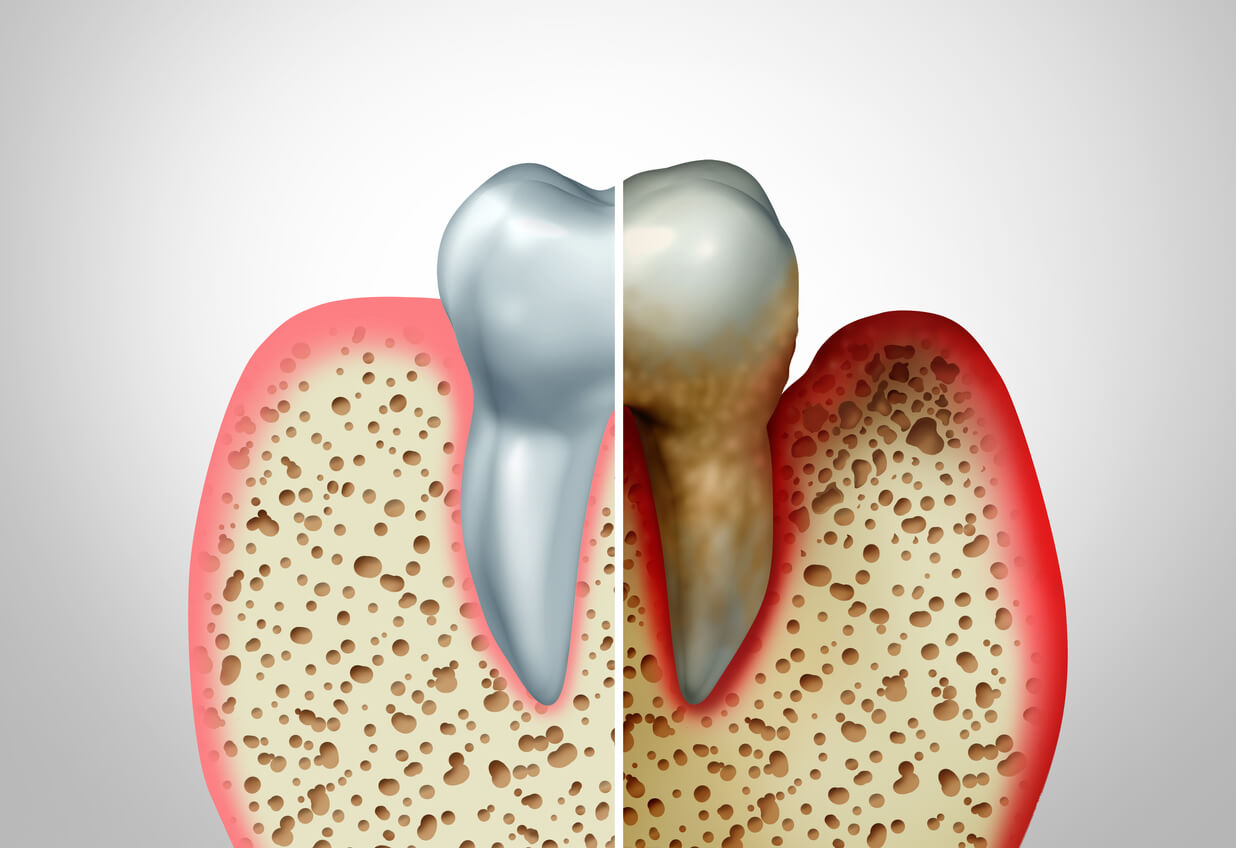In Great Neck, Briarwood, and across the globe, gum issues are common in adults and children alike. Left untreated, gum disease and gingivitis can cause more extreme problems in your mouth and even in other parts of your body. That’s just one more reason why it is important to keep on top of your oral health routine, check in with a dentist regularly, and know the signs of gum issues. Healthy gums are pink in color and firm to the touch. Qualities outside of this can be cause for concern. Below are a few common warning signs that your gums are in poor shape. Of course, if you have any questions or concerns about the health of your gums, it is important that you reach out to a dentist. Our staff is specially trained to help you identify gum problems and treat them in an effective manner through periodontal care services.
Bleeding and redness
Many people think that bleeding is normal when you brush, and especially when you floss. Unfortunately, that is not the case. If you find blood in your sink after brushing, there’s a high chance that you have gingivitis. This condition occurs when plaque builds up over time and is not able to be removed through at-home care. Heavy amounts of plaque can cause inflammation within your gums, making it possible for them to swell and easily bleed. Although it is mostly invisible, it’s important to remember that plaque can build up quickly! That’s why it’s important that you clean your teeth at least twice a day and have professional cleaning treatments at a dental office.
Pain and sensitivity
Do your teeth and gums hurt when you eat cold treats, like ice cream and popsicles, or do hot foods, like soup, make you bristle in pain? Although there are a variety of reasons that people develop tooth sensitivity, one of the most common causes is gingivitis. If gingivitis is indeed the cause of your discomfort, it can be a warning sign that you are entering more advanced stages of periodontitis.
Receding
Do your teeth seem loose even though you are years past visits from the tooth fairy? Do your teeth somehow look longer or simply different than they usually do? These are all signs of gum issues. Sometimes it can be difficult to identify receding gums at home, but a visit to the dentist can quickly help you identify if you have this issue, which is often a result of gingivitis. Fortunately, most of the time, receding gums can be helped through better, softer brushing. However, in severe cases, surgery or other advanced procedures may be needed. The best way to sort out a situation is by speaking with your dentist.
All these warning signs of gum issues should be taken seriously. Although gingivitis is common, it’s still a concern that can lead to advanced gum problems and even tooth loss.
When gingivitis and other gum issues are caught early, they can be treated and reversed. It is essential to your oral health that you intervene before things get out of control, leading to more complex dental issues.
To prevent gingivitis and other gum issues, take time to take care of your mouth. Avoiding tobacco products, being mindful of your family’s oral health history, and watching for changes in your mouth during pregnancy or other hormonal periods can help you stay on top of gingivitis.
Be sure to speak with a professional if you have any concerns or questions about your gum health.

